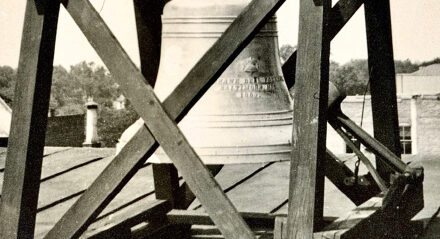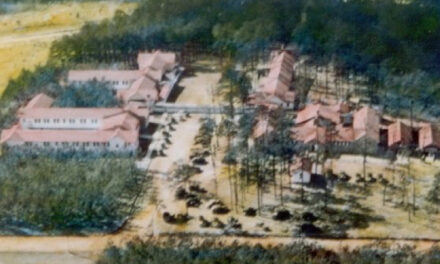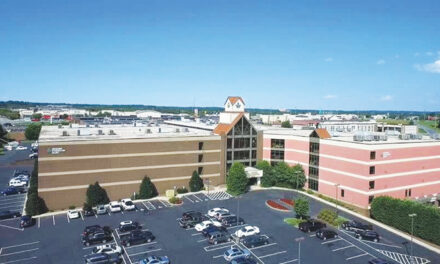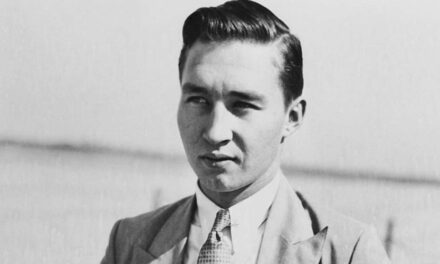
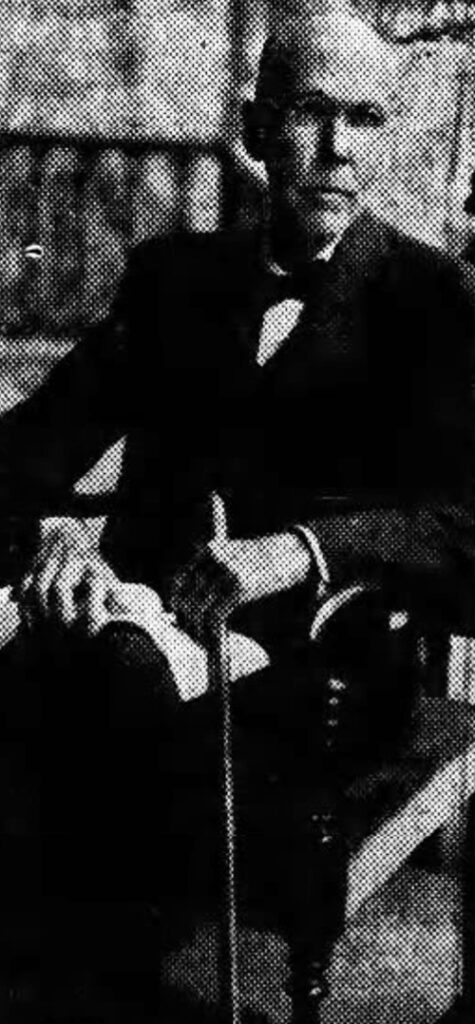
Photo: Major J.L. Latta, Hickory’s foremost inventor and historian (Image courtesy HDR)
Hickoryites called him “Major Latta,” even though as he described it, he had “no military right” to the title. “I’m just an ordinary man with nothing noteworthy about me,” he said, on the occasion of his 83rd birthday. But by then, J. L. Latta was an institution in Hickory and accepted the honorific nickname of Major with grace and appreciation.
For almost 70 years, Major John Lee Latta was a fixture in town. He came from eastern North Carolina as a boy of sixteen in 1877 with his parents, liked the place and decided to stay, becoming something of a Renaissance Man. He got into the printing and publishing business for a while, then became an inventor, developing the first pneumatic displacement pump, which grew into one of Hickory’s signature businesses. For his work, he was deemed noteworthy enough to be named in the 1927 edition of “Who’s Who in the South.”
The pump, a pneumatic creation that used forced air to push multiple gallons per minute, began for Latta, with the use of “an old tomato can” that he used as a cylinder. In 1896, the Major began manufacturing his pump in partnership with J.A. Martin. By the time of Latta’s death in 1945, his Hickory-manufactured pumps had been installed all over the world, pumping everything from sugar cane juice in Hawaii, to water in the copper mines of Russia.
Locally though, he became one of the town’s first historians. It may be that as he grew older and “enjoyed reminiscing about the old days” people began to turn to Major Latta as an eyewitness on the way things were. Like the time a boiler exploded in downtown, about 1892, Major Latta remembered and commented, “when I heard the explosion, I looked out and saw the boiler come soaring over the trees like an airplane. It went about two hundred fee and landed in the yard near the Reinhardt house.”
Though he could claim the titles of inventor, entrepreneur, as well as one of Hickory’s “pioneer printers” he remained humble. In a 1939 article about his accomplishments, he protested all the accolades being thrown around. “But my life” he insisted, “is a just a failure from beginning to end,” an odd assessment of his efforts.
Yet, the Major was gifted with a long life, living into his 80s and with the good timing of being one of the oldest Hickory citizens with the capacity to remember the old days, when he watched the town grow up.
He preserved his memories by writing for the Hickory Daily Record for years with the title of local historian. Latta embodied the attitude of his era, endeavoring to highlight others, not himself. In fact, one account labeled him as “the most modern man in Hickory: but that would be boasting: and boasting is something he would never do.”



